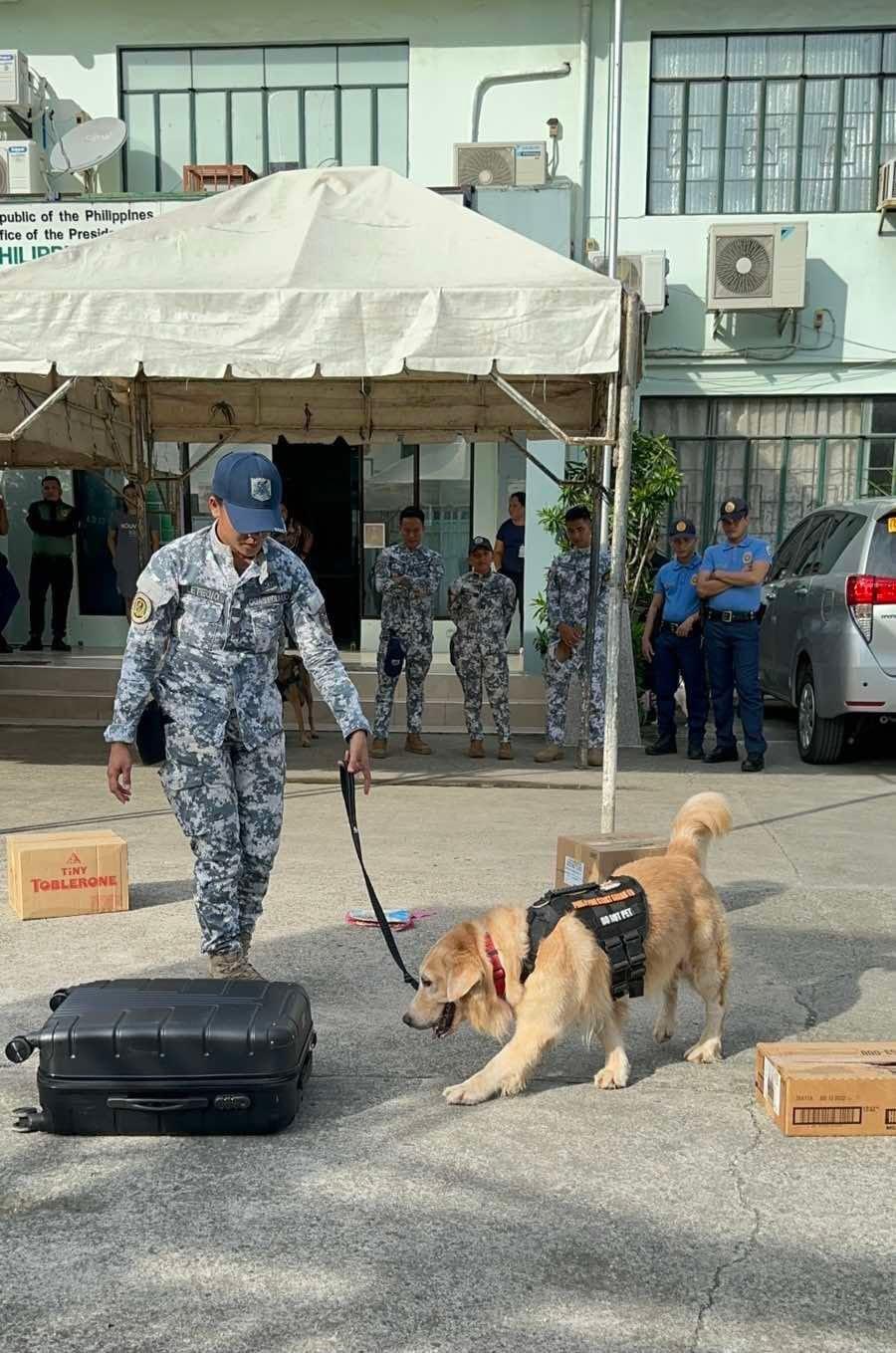Solon bats for K9 units to fight drug trafficking in all ports

A Leyte lawmaker wants all towns and cities with seaports to have their own K9 units to enhance security and possibly serve as a “strong deterrent” to the smuggling of illegal drugs in the ports.
House Assistant Majority Leader Richard Gomez filed House Bill No 10873, or the proposed “LGU Anti-Drug Canine Enforcement Act,” which describes seaports as “critical entry points for drug traffickers” because of the country’s vast coastline, making monitoring and securing them challenging.
The Leyte 4th district representative pointed out that while Republic Act 9165, or the Comprehensive Dangerous Drugs Act of 2002, laid the groundwork for a coordinated and strategic approach to combating illegal drugs.
He pointed out that the enforcement of this law, particularly in regions with seaports, has been hampered by the lack of adequate resources at the local level.
“Seaports are among the most vulnerable points for drug smuggling due to the high volume of goods and the complexity of maritime trade,” he noted, emphasizing that “without proper monitoring and enforcement mechanisms, these areas become convenient corridors for drug traffickers.”

According to Gomez, local government units (LGUs) play a crucial role in protecting their areas against crimes, particularly drug trafficking, but their lack of technical resources in their respective anti-illegal drug campaigns reduces their capability to detect and intercept narcotics.
The legislator mentioned that his bill would mandate that all LGUs with seaports establish and keep their own K9 units that are specifically trained to detect narcotics.
“The presence of these K9 units will enhance the detection capabilities of LGUs, improve security at seaports, and serve as a strong deterrent to drug traffickers,” he said, adding that by intercepting illegal drugs at the point of entry, “LGUs can significantly reduce the distribution of these substances within their communities, thereby protecting the health and safety of their constituents.”
Read more: NCRPO trains more K9s for narcotics, explosive detection
Proposed provisions
HB 10873 seeks to mandate all LGUs with operational seaports to establish and maintain their own canine teams that are specifically trained for anti-drug enforcement. These K9 units shall be deployed at seaports under the jurisdiction of their respective LGUs.
The K9 units should undergo training and be certified by the Philippines Drug Enforcement Agency (PDEA) or other accredited institutions before they could conduct regular inspections and monitoring of seaports and assist law enforcement agencies in anti-drug operations.
“Training should include drug detection, handler training, and other necessary skills to ensure the effectiveness of the K9 units,” the bill says.
The funding for the K9 units will come from the LGUs’ annual national tax allotment and other available funds or grants.
However, the Department of the Interior and Local Government (DILG) can provide additional financial assistance to help LGUs bankroll the K9 units.
In addition, HB 10873 permits the DILG to collaborate with PDEA and the Philippine Ports Authority to craft the implementing guidelines for the measure.

















